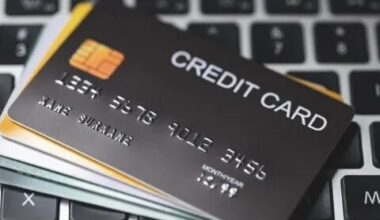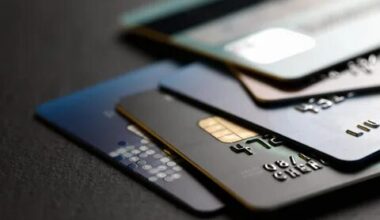Introduction: The Hidden Risk of Plastic & Digital Cards
Credit cards can feel like magic: flexible spending power, rewards, protection, convenience. But with that power comes real risk especially when we slip into careless habits. Each time you swipe, tap, or click, you’re not just spending money; you’re impacting your credit history, your fees, your financial future.
If used wisely, a credit card can boost your financial life. If misused—even with “just a few dollars here and there”—it can quietly erode your standing, raise costs, and trap you in debt. The good news? Many of the worst mistakes are avoidable. Let’s explore the most common errors, why they matter, and how you can make smarter choices.
Why These Mistakes Happen
Before diving into specific errors, it helps to understand why they occur. Some common underlying reasons:
- Mis‐understanding of how credit works. Many treat a credit card as “free money,” forgetting it’s borrowed and subject to terms.
- Overconfidence and reward chasing. The lure of points, cashback or sign-up bonuses can lead to overspending or selecting the wrong card.
- Lack of awareness of charges and terms. Hidden fees, high interest rates, expiry of introductory offers—they all sneak in when we ignore the fine‐print.
- Emotional or impulsive spending. It’s easy to click or swipe when we see something we want, and push the impact to later.
- Distraction and neglect. Missing statements, ignoring account alerts, letting balances slip—these are quiet but powerful drags.
Recognising that the mistake often stems from behaviour (not just bad luck) is empowering, because behaviour can be changed. Below we break down the major mistakes, what they cost, and what you can do instead.
Major Mistakes and How to Avoid Them
Here are the most common missteps with credit cards and practical strategies to avoid them.
1. Missing Payments or Paying Late
One of the simplest yet most damaging mistakes: not paying on time. Your payment history is a large part of your credit score.
Why it matters:
- Late payments can lead to penalty interest or fees.
- They stay on your credit report for years, hurting your ability to borrow in the future.
Smart move: - Set up automatic payments (full amount or at least more than minimum).
- Use calendar alerts or app notifications.
- If you ever miss a payment, contact the issuer promptly to mitigate damage.
2. Only Making Minimum Payments
Paying the minimum each month seems “safe” but it’s a trap.
Why it matters:
- The remaining balance accrues interest, often at high rates.
- You’ll carry debt far longer and pay much more in interest overall.
Smart move: - Aim to pay the full statement balance each month whenever possible.
- If you carry debt, pay as much above the minimum as you can to reduce interest faster.
- Consider using budgeting tools to free up extra payment capacity.
3. Using Too Much of Your Credit Limit (High Credit Utilisation)
Your “credit utilisation” (balance ÷ credit limit) is a key driver of your credit score. High utilisation signals risk.
Why it matters:
- Using 50-70% or more of your limit can significantly drop your score.
- It reduces your buffer and raises the risk of maxing out.
Smart move: - Keep utilisation under ~30% (some go for under 10% if rebuilding).
- If possible, ask for a credit‐limit increase (without spending more).
- Spread purchases across multiple cards (responsibly) to lower utilisation per card.
4. Applying for Too Many Cards in a Short Period
Every time you apply for a new card a hard inquiry is added to your credit report. Too many applications signal risk.
Why it matters:
- Hard inquiries can temporarily reduce your credit score.
- Multiple new accounts can lower the average age of your credit history.
Smart move: - Only apply when you truly need a card and it fits your strategy.
- Space out applications by several months.
- Research pre-qualification tools where possible (they use soft pulls).
5. Choosing the Wrong Card or Not Knowing the Terms
Selecting a card just for a bonus or because it looks good—but not matching your spending habits—is a frequent error.
Why it matters:
- A card with fees, high interest or poor rewards may cost you more than benefit.
- Misunderstanding terms (intro rates, balance-transfer fees, variable APRs) can lead to surprises.
Smart move: - Evaluate your spending: what categories you use most (groceries, gas, travel).
- Check the card’s fees: annual fee, foreign‐transaction fee, interest rate.
- Understand when introductory offers end and what the standard rate becomes.
6. Closing Old or Unused Card Accounts Without Strategy
Many think closing a card means less temptation—but it often hurts your credit.
Why it matters:
- It reduces your total available credit (raising utilisation).
- It shortens your credit-history length, which can lower your score.
Smart move: - If you’re not using the card and it has no fee, keep it open but dormant.
- If it has a high annual fee and you won’t use it, consider closing—but do so strategically (pay off balance, maybe ask issuer to downgrade instead).
- Monitor the impact on your score after closure.
7. Overspending or Using the Card Like Free Money
A credit card is convenient—but it’s borrowed money. Using it without planning invites debt.
Why it matters:
- Rewards can lure you into spending more than your budget allows.
- You may pay interest or fees that outweigh the benefit of the rewards.
Smart move: - Set a budget for card spending just as you would cash or debit.
- Only charge amounts you can pay in full (or nearly so) when the statement arrives.
- Focus on rewards that match your spending pattern—not chasing every deal.
8. Ignoring Monthly Statements & Account Monitoring
Simply ignoring what’s happening on your card is a silent risk.
Why it matters:
- You might miss fraudulent charges or mistakes.
- You may be unaware of creeping balances, fee changes or rate hikes.
Smart move: - Review your statement every month: check transactions, due date, amount due, interest rate.
- Turn on transaction alerts and low-balance warnings.
- Immediately question unfamiliar charges and report fraud.
9. Using Cash Advances or Store Cards Without Understanding Terms
These tools often carry higher rates or fewer protections and may lure you with discounts you don’t truly benefit from.
Why it matters:
- Cash advances often have no grace period, high interest and fees.
- Store-branded cards may have restrictive rewards and high rate increases.
Smart move: - Avoid cash advances unless clearly needed and understood.
- Evaluate store cards the same way you evaluate any card: check rate, fees, rewards, how often you’ll use it.
- Make sure you’re not paying more in interest/fees than you stand to gain.
A Quick Comparison Table of Mistakes vs. Consequences vs. Fixes
| Mistake | Consequence | Fix / Smart Move |
|---|---|---|
| Missing or late payments | Lower credit score + fees | Set up auto-pay or reminders |
| Paying only the minimum | More interest, longer payoff | Increase payments, aim for full balance |
| High credit-utilisation | Score damage, less credit buffer | Keep utilisation under ~30%, spread usage |
| Multiple applications at once | Hard inquiries, shortened history | Space applications, apply only when needed |
| Wrong card or unaware of terms | Fees, high rates, poor reward usage | Choose card matched to spending; read terms |
| Closing old cards indiscriminately | Loss of credit history + reduced limit | Keep low-cost cards open, close only if needed |
| Treating card like free money | Overspending, debt accumulation | Budget card spending, pay off promptly |
| Ignoring statements & monitoring | Fraud goes unnoticed, creeping costs | Review monthly, enable alerts |
| Cash advances/store cards mishandled | High cost credit, poor flexibility | Understand terms, avoid unless necessary |
Why Avoiding These Mistakes Matters Beyond Just “Not Screwing Up”
You might think “I’ll just pay off whatever I charge” and move on—but the effects of mistakes go deeper:
- Credit score impact: Your ability to borrow (for a home, car, business) depends on your credit health. Dialling back bad habits improves opportunities.
- Interest and fee costs: Mistakes translate into extra dollars paid in interest, fees and lost rewards over time.
- Financial stress: Carrying debt or being surprised by charges increases anxiety. Avoiding mistakes means more financial peace.
- Opportunity cost: Using cards wisely leaves more room to save or invest. Misused cards often mean fewer funds for goals.
Realistic Strategies for Long-Term Credit Card Health
Having covered mistakes and fixes, let’s talk about creating a sustainable, healthy credit-card approach you’ll stick to.
Build habits, not just one-time fixes
- Make it a rule: Pay the full statement balance each month (or as much as you can).
- Auto-enroll in alerts and autopay.
- Periodically audit your cards: Are you still using them? Are there fees? Are there better options?
- Track your utilisation ratio and aim to keep it low.
- Make sure any new card is intentionally added and suits your spending pattern.
Use cards as tools, not as temptation
- Treat your card like a digital version of cash: still a tool, not “free money.”
- Only charge what you would pay for in cash if you were using cash (or debit).
- Use rewards as a bonus, not the reason you spend.
- Avoid opening a card just because of a promotion, unless it actually benefits you.
Know your terms and stay informed
- Read your card agreement, especially: regular APR (after intro), annual fees, foreign-transaction fees, cash-advance fees.
- Keep track when introductory offers end or when fee increases happen.
- If something changes (fee added, rate increased), reassess whether the card is still worth it.
Monitor and respond
- Review statements monthly and reconcile with your own records.
- Keep an eye out for fraud or unauthorized charges—early detection saves stress.
- If your situation changes (job loss, lower income), reduce card usage proactively.
- If you carry debt, consider options like a balance transfer or structured repayment plan—but only if terms truly reduce cost.
Use cards to build credit, not destroy it
- A well-managed card with a low balance and on-time payments contributes to a strong credit profile.
- Keep older accounts open if they’re low-cost—they show long credit history.
- Limit how many new cards you apply for—quality over quantity matters.
- If you carry business or multiple cards, manage them like parts of a system with budgeting, tracking, and smart use.
When Things Go Off Track – What to Do
Even the best of us slip up. What if you’ve already fallen into some of these traps?
- Check your credit report: See if there are late payments, high utilisation, or unexpected activity.
- Set a recovery plan:
- Fix late payments (catch-up payments).
- Pay down balances aggressively.
- Stop opening new cards until your profile stabilises.
- Use one card (or two) only until you’re confident in your control again.
- Reach out to issuers: If you’re struggling, ask for hardship programs or interest-rate relief. Many are willing to help responsible customers.
- Budget and reprioritise: Perhaps move some spending from card to cash/debit until control is restored.
- Learn from the experience: Think ahead—what triggered the mistake? Was it overspending, ignorance of terms, lack of monitoring? Address the root cause.
Conclusion: Your Credit Card Can Be a Powerful Ally
In the hands of a conscientious user, a credit card becomes more than a payment tool—it’s a way to build credit, earn rewards, keep funds flexible, and manage finances smarter. But in the hands of someone unaware of the risks, it can become a burden of debt, fees, stress and lost opportunity.
By recognising these common mistakes and committing to a smarter approach, you shift from reactive use to intentional use.
You choose the card that fits your life. You budget your spending. You pay attention. You keep utilisation low, you monitor the account, you know the terms. And when (not if) you make a slip, you have a plan to recover without letting it spiral out of control.
So let the plastic (and digital) card in your wallet remind you of possibility—not peril. Use it with awareness, stay consistent, and you’ll keep the power in your hands.





